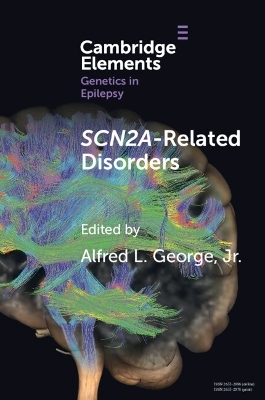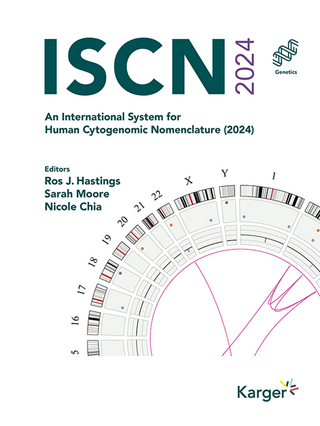
SCN2A-Related Disorders
Seiten
2024
Cambridge University Press (Verlag)
978-1-009-53037-8 (ISBN)
Cambridge University Press (Verlag)
978-1-009-53037-8 (ISBN)
This Element provides a review of the clinical features, genetic basis, pathophysiology, pharmacology and treatment of these genetic conditions authored by leading experts in the field and accompanied by perspectives shared by affected families. This title is also available as Open Access on Cambridge Core.
SCN2A encodes a voltage-gated sodium channel (designated NaV1.2) vital for generating neuronal action potentials. Pathogenic SCN2A variants are associated with a diverse array of neurodevelopmental disorders featuring neonatal or infantile onset epilepsy, developmental delay, autism, intellectual disability and movement disorders. SCN2A is a high confidence risk gene for autism spectrum disorder and a commonly discovered cause of neonatal onset epilepsy. This remarkable clinical heterogeneity is mirrored by extensive allelic heterogeneity and complex genotype-phenotype relationships partially explained by divergent functional consequences of pathogenic variants. Emerging therapeutic strategies targeted to specific patterns of NaV1.2 dysfunction offer hope to improving the lives of individuals affected by SCN2A-related disorders. This Element provides a review of the clinical features, genetic basis, pathophysiology, pharmacology and treatment of these genetic conditions authored by leading experts in the field and accompanied by perspectives shared by affected families. This title is also available as Open Access on Cambridge Core.
SCN2A encodes a voltage-gated sodium channel (designated NaV1.2) vital for generating neuronal action potentials. Pathogenic SCN2A variants are associated with a diverse array of neurodevelopmental disorders featuring neonatal or infantile onset epilepsy, developmental delay, autism, intellectual disability and movement disorders. SCN2A is a high confidence risk gene for autism spectrum disorder and a commonly discovered cause of neonatal onset epilepsy. This remarkable clinical heterogeneity is mirrored by extensive allelic heterogeneity and complex genotype-phenotype relationships partially explained by divergent functional consequences of pathogenic variants. Emerging therapeutic strategies targeted to specific patterns of NaV1.2 dysfunction offer hope to improving the lives of individuals affected by SCN2A-related disorders. This Element provides a review of the clinical features, genetic basis, pathophysiology, pharmacology and treatment of these genetic conditions authored by leading experts in the field and accompanied by perspectives shared by affected families. This title is also available as Open Access on Cambridge Core.
Introduction; Patient, Family and Foundation Perspectives; Clinical Spectrum and Genotype-Phenotype Correlations; The Biology of SCN2A; Treatment of SCN2A-Related Disorders; Abbreviations; Appendix; References.
| Erscheint lt. Verlag | 31.12.2024 |
|---|---|
| Reihe/Serie | Elements in Genetics in Epilepsy |
| Zusatzinfo | Worked examples or Exercises |
| Verlagsort | Cambridge |
| Sprache | englisch |
| Themenwelt | Medizin / Pharmazie ► Medizinische Fachgebiete ► Neurologie |
| Studium ► 2. Studienabschnitt (Klinik) ► Humangenetik | |
| Naturwissenschaften ► Biologie ► Humanbiologie | |
| Naturwissenschaften ► Biologie ► Zoologie | |
| ISBN-10 | 1-009-53037-2 / 1009530372 |
| ISBN-13 | 978-1-009-53037-8 / 9781009530378 |
| Zustand | Neuware |
| Informationen gemäß Produktsicherheitsverordnung (GPSR) | |
| Haben Sie eine Frage zum Produkt? |
Mehr entdecken
aus dem Bereich
aus dem Bereich
An International System for Human Cytogenomic Nomenclature (2024)
Buch | Hardcover (2024)
Karger (Verlag)
117,70 €
Eine sehr persönliche Geschichte | Der New York Times-Bestseller
Buch | Softcover (2023)
Ullstein Taschenbuch Verlag
21,99 €
Die revolutionäre Medizin von morgen (Lifespan)
Buch | Softcover (2020)
DuMont Buchverlag
16,00 €


